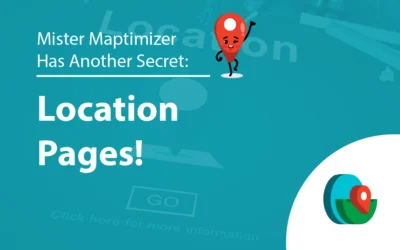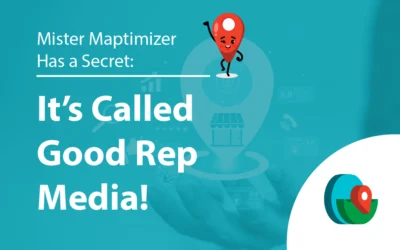Getting your website noticed feels like shouting into the wind sometimes, right? You know quality traffic is the goal for your business. Getting more visitors to your website directly impacts your sales. More eyes equal more opportunities.
Boosting your search engine optimization? Getting Google’s attention is the first step. It works. Think of link building as making friends for your website. The more friends, the better it does. Your SEO ranking depends a lot on the strategies you use. If you want your site to climb the search results, you absolutely need a plan for building links.
You’re in the right spot if you’re hunting for ways to make your site more visible this year. Good SEO needs strong links. This is the most effective way. Focus on making genuine connections online—it’s all about the people. Friendships and family—they mean everything.
Table Of Contents:
- What Exactly is Link Building Anyway?
- Why Bother With Link Building?
- Laying the Groundwork: Keyword Research First
- Anchor Text Matters
- Commit to Consistent Link Building Efforts
- Seek Links from Relevant Websites
- Get Visual: Create Infographics and Assets
- Create Content People Actually Want to Share
- Tap into Influencer Marketing
- Explore Guest Blogging Opportunities
- Run Contests and Giveaways
- Don’t Ignore Local SEO Links
- Master Broken Link Building
- Leverage Internal Linking
- Understand Nofollow vs. Follow Links
- Monitor Your Backlink Profile
- Make Your Website Mobile-Friendly
- Conclusion
What Exactly is Link Building Anyway?
Let’s keep it simple. Link building is the process of getting other websites to link to pages on your site. Think of these incoming links, specifically quality backlinks, as votes of confidence from other website owners.
A link from a good website tells search engines your website is reliable and useful. Your site will climb the search rankings. Your site’s authority increases when search engines easily grasp your content’s focus. Think of it like getting a good recommendation; it makes a big difference! More high-quality links generally lead to higher rankings and increased organic traffic and referral traffic.
But not all links are created equal, and Google’s guidelines are clear on this. Google’s pretty smart now and can spot links designed just to manipulate rankings, often classifying them as a spammy link. You need to earn links from relevant, authoritative websites to really move the needle and avoid spammy link building tactics that can harm your backlink profile.
Why Bother With Link Building?
Think about it like building connections in the real world. A link from a respected website is like a referral from a trusted friend, signaling value. It tells Google and other search engines your content is worth checking out.
These links, both external links coming into your site and your own internal links, act as pathways between websites. They show Google new web pages and how those pages link together across the web; it’s like a giant map! Without links, your amazing high-quality content might just sit there, undiscovered, negatively impacting your engine optimization efforts.
Good seo link building builds your site’s authority, often measured by metrics like domain authority. Better search results? This authority gets you there for the terms that matter most to your audience. Website visibility is a long game. Successful SEO depends on a solid plan for getting your site seen by more people over time. Persistent dedication—that’s the winning formula. Think marathon, not sprint.
Laying the Groundwork: Keyword Research First
Before you even think about asking site owners for links, you need content worth linking to. And great content starts with knowing what people are searching for online. Effective keyword research is crucial; take the time to identify the best terms for your project. Consider your audience and what they might search for.
Tools like Google Keyword Planner, Ahrefs, or SEMrush can give you ideas and search volume data. See which words are hot for your subject; those are your keywords! Pay attention to people’s questions; that’s where you’ll find the problems to solve. Think about it – what are people searching for online? Social media chatter: What’s everyone talking about? There you have it.
Try focusing on long-tail keywords; these are longer, more specific phrases like “best budget seo link building tools”. Reduced competition lets them concentrate on a market segment with clearly defined desires; it’s a targeted approach. Answering specific questions thoroughly makes your content a valuable linkable asset that naturally attracts links.
Anchor Text Matters
Okay, you’ve identified link prospects and found a site willing to link to you, perhaps via guest posting. Rad! This is working. Now, pay attention to the clickable text used for the link, known as anchor text.
Using relevant keywords in your anchor text helps tell search engines what the linked page is about; it provides context. Avoid generic phrases like “click here” or “read more” as they offer little SEO value. Aim for descriptive, natural-sounding text that includes relevant link anchor text terms.
But don’t overdo it with exact match keywords in your anchor text backlinks. Google prefers natural language and a varied link profile. Mix up your anchor text with branded terms, partial matches, and even naked URLs to keep things looking organic and user-friendly; this approach supports building quality links.
Commit to Consistent Link Building Efforts
Link building isn’t a one-and-done task; adding link after link requires sustained effort. To get the best search engine results, you need to pay attention to SEO regularly. It’s not a one-time thing. Think of it like watering a plant; consistent effort leads to better results. Think of it like tending a garden; you need to consistently nurture it to see growth in your seo links.
Sporadic efforts won’t yield significant results or build a strong link profile. You need to dedicate time each week or month to finding opportunities, building relationships, and actively building links. Consistency signals to Google that your site is active and continuously gaining recognition from other sites linking to it.
Keep track of your progress using a link explorer tool or SEO software. Monitor new links acquired, check their quality (are they follow links or nofollow links?), and analyze their impact on your rankings and referral traffic. You’ll see what works and adjust your building strategy accordingly.
Seek Links from Relevant Websites
Relevance is critical in link building; receiving a link from an unrelated site is less valuable. A link from a website completely unrelated to your niche won’t carry much weight with search engines. It might even look suspicious and be flagged as a potentially spammy link.
Focus your building link efforts on getting links from sites within your industry or related fields. Their audience is more likely interested in your relevant content. This improves the link for both people clicking it and search engines that check its importance.
Also, consider the authority of the linking site. Links from well-established, trusted websites (often indicated by higher domain authority scores) are more powerful than links from new or low-quality sites. While tools exist to gauge site authority, focusing on genuine relevance and the quality of the referring site’s content is often the best starting point for building quality backlinks.
Get Visual: Create Infographics and Assets
People love visual content, making it a prime linkable asset. Infographics, charts, videos, and even custom images can attract links naturally. Web sharing is a breeze with their help; they break down complex topics.
Pictures and graphs are a great way to show, don’t just tell, what you’ve done. Make sure to include them! Make them easy to understand. Make them easily shareable by providing embed codes directly on your blog post or resource page. Visuals often get picked up by other blogs and websites looking for engaging ways to present information to their readers.
Promote your visual assets on social media and through targeted outreach to relevant website owners. When others use your infographic or chart, make sure they attribute it correctly with a follow link back to your original source page. Building website links and raising brand awareness? Yes! It worked perfectly. High five! That did the job.
Create Content People Actually Want to Share
This might sound obvious, but it’s the core of successful, sustainable link building. Your content needs to be genuinely valuable, interesting, or useful; it must be high-quality content. Without great main content, outreach efforts to build links will likely fall flat.
What makes content share-worthy and a strong linkable asset? Think of it: original research. Facing common issues? Practical answers are here, along with clear explanations of the causes. You’ll learn what to do *and* why it works. Maybe a different take on things in the industry is needed. Or maybe a free tool that actually works. Figure out what your audience wants, then make stuff that actually helps them get it.
Creating amazing content takes dedication and investment; it’s a worthwhile use of your time and money. Aim to make it better, more thorough, or more engaging than what’s already ranking for your target search terms. Quality content attracts links organically because people naturally want to reference and share the best resources available, helping you earn links passively.
Tap into Influencer Marketing
Influencers in your niche have established audiences that trust their recommendations. Their audience becomes your audience. Collaborate and see more relevant traffic head your way. Getting links from well-known, trusted websites is another great advantage. Think of it like getting a recommendation from a respected expert – it adds weight to your own work.
Contact influencers; see if they want to team up. Building links? They could lend a hand! This could involve sponsored posts, product reviews, joint webinars, or featuring them in your own content (like expert roundups or interviews). Building genuine, mutually beneficial relationships is key here, rather than just asking for a link.
When influencers share your content or mention your brand, they often include a relevant link back to your website. Credibility and better search rankings? You get both when you link to respected people in your area of expertise. Building a strong online presence is easier with this approach. Brand awareness goes up, and you get awesome links—it’s a simple SEO recipe for success. This improves your search engine ranking.
Explore Guest Blogging Opportunities
Guest blogging, or guest posting, involves writing articles for other websites in your industry. Spread the word about your brand and what you do; it’s a proven method for success. It also typically lets you include a link back to your own site, contributing to your link building efforts.
Identify reputable blogs that accept guest contributions and whose audience aligns with yours; these are good link prospects. Propose some compelling articles; make them valuable and show your stuff. The better the idea, the better the article. Focus on delivering high-quality content, not just securing a text backlink; the goal is to benefit the host site’s readers.
Most guest posts allow a link in your author bio, and sometimes within the content itself if it’s editorially relevant and adds value (a contextual internal link or external link). Links from good websites really help with search engine optimization and building your website’s online presence. Increase your influence and get more people to your website—guest posting does both.
Run Contests and Giveaways
Everybody loves free stuff. Want more attention online? Try hosting a competition or giveaway—it’s a proven way to get people talking. Sharing on social media and links from other sites—that’s the kind of attention a contest generates. This publicity? A game changer.
Promote and gamify your contest widely across multiple channels – email, social media, and outreach to relevant bloggers or news sites. Consider asking participants to share the contest page on social media or even mention it on their own websites for extra entries (ensure this complies with platform guidelines). This naturally spreads the word and can help you earn links to the contest page.
Make sure the prize is genuinely appealing and relevant to your target audience and brand. Boost your online presence and watch your website traffic climb—a well-planned contest can make it happen. Think of it like this: a great page attracts links. Yep, this will get your site higher up in search results.
Don’t Ignore Local SEO Links
If you operate a business serving a specific geographic area, optimizing for local search is essential. Building links and getting local citations are part of the process. Get found online by people nearby! Better local SEO rankings mean more business. That’s their purpose. Simple as that.
Get listed in reputable online directories like Yelp, Google Business Profile, Bing Places, and relevant local or industry-specific directories (e.g., local chamber of commerce sites). Ensure your business name, address, and phone number (NAP) are consistent everywhere you list them. Think of these citations as local signposts for search engines such as Google; they help them understand your location.
Sponsor local events, sports teams, or charities. Partner with other complementary local businesses for cross-promotions. You’ll gain local recognition and authority by appearing on local news sites, community group websites, and event calendars; these sites often link back to your content. Find more tips on local business structured data from Google.
Master Broken Link Building
Broken link building is a strategic way to build links by finding resources that no longer exist on other websites. First, identify relevant websites in your niche. Use a broken link checker tool helps find dead links (404 errors) on their pages.
Once you find a broken link pointing to content similar to what you offer, reach out to the site owner or editor. Let them know about the dead link, which hurts their user experience. Then, suggest replacing the broken link with a link to your relevant content or linkable asset.
Fixing website errors is easier with this approach; it’s a big help to website owners. It also gives you a chance to gain a high-quality backlink from a relevant source. Building links this way helps everyone involved and is really effective.
Leverage Internal Linking
While much focus is on external links, don’t neglect your internal link strategy. Internal links connect pages on your own website. Need to find something? Locate items fast! Need something similar? Just click.
Strategically placed internal links also help search engines understand your site structure and the relationship between different pieces of content. They distribute “link equity” or “link juice” throughout your site. Pages with more internal links pointing to them may be seen as more important.
Use descriptive anchor text for your internal links, often incorporating relevant keywords naturally. Link your important service pages or cornerstone blog posts from other relevant pages on your site. Good SEO and a great user experience go hand-in-hand. Internal links are a big part of that.
Understand Nofollow vs. Follow Links
Not all links pass SEO value equally. Websites generally use the “follow” attribute for most links, which tells Google to crawl the linked page and pass authority. However, some links use the `rel=”nofollow”` attribute.![]()
The nofollow attribute tells Google not to crawl the linked page through that specific link or pass authority. Common uses include links in blog comments, forum posts, sponsored content, or user-generated content to avoid spammy link building associations. Links marked with `rel=”sponsored”` or `rel=”ugc”` are also treated similarly regarding passing authority.
While you should primarily aim for follow links, nofollow links aren’t worthless. They can still drive valuable referral traffic, increase brand awareness, and contribute to a natural-looking backlink profile. Google doesn’t completely ignore them; they can still be useful signals, even if they don’t directly boost rankings like follow links do.
Monitor Your Backlink Profile
Regularly analyzing your link profile is crucial for maintaining healthy SEO. Use tools like Google Search Console, Ahrefs Link Explorer, or SEMrush Backlink Analytics. You can use these tools to see which websites link to you and watch your profile change over time.
Monitoring lets you spot those awesome new backlinks you’ve gained. You can then see which strategies are bringing in the best results from your link-building efforts. This will make all the difference later on. Checking for bad links? This will help you spot them—think spam and other risky websites. If you find low-quality or irrelevant sites linking to you, especially if you suspect negative SEO, you might need to disavow them through Google’s tool.
Understanding your backlink profile—the types of sites linking, the anchor text used, the ratio of follow vs. Checking nofollow links reveals your site’s authority and pinpoints areas needing improvement. Avoid spammy tactics like attempting to buy links, as this violates Google’s guidelines and can lead to penalties. Concentrate on building meaningful relationships.
Make Your Website Mobile-Friendly
This isn’t strictly a link building tactic, but it’s vital for overall SEO success and user experience. Google prioritizes mobile-friendly websites in its rankings, especially since implementing mobile-first indexing. A poor mobile experience can hurt your rankings, making all your SEO efforts, including link building, less effective.
Make sure your site design is responsive. This means it adjusts automatically to fit any screen size, from desktops to smartphones and tablets. Test your site’s mobile usability using Google’s Mobile-Friendly Test tool and check the mobile usability report in Google Search Console.
Websites that work well on phones give people a much better experience. This keeps people on the site longer and cuts down on people leaving right away. Positive feedback from users improves your site’s search engine ranking. No one wants to link to a site that’s frustrating to use on a phone, so mobile-friendliness supports your ability to earn links and benefit from them.
Conclusion
Creating high-quality backlinks is no walk in the park; it demands both perseverance and a well-thought-out plan. Success requires both. Solid search engine rankings and good organic traffic are really important, and this plays a vital role. Focus on creating amazing, relevant content people genuinely want to link to and share – make it a true linkable asset.
Become buddies with influencers and other site owners in your area of expertise. Build genuine relationships. Be consistent with your efforts, prioritizing quality backlinks and relevance over sheer quantity to build a healthy link profile. Successful seo link building is about earning trust and authority online, one valuable follow link at a time, and adhering to Google’s guidelines to avoid spammy practices.
Website visibility increases when you regularly apply these techniques. Better online results come from attracting the right kind of viewers; this strategy helps you do just that. Think of it like building a strong reputation, brick by brick. Remember that a solid link building strategy is a long-term investment in your digital presence. Start building quality links today.




